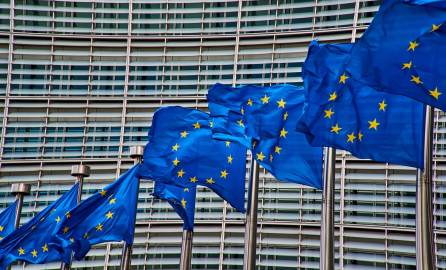A recent two day planning and knowledge exchange workshop to address institutional change gave a boost to the implementation of the Comprehensive Institution Building Programme, bringing together some 25 colleagues from EuropeAid headquarters and representatives from European Union delegations in five of the six eastern partnership (EaP) countries.
The CIB Programme aims to enhance institutional capacity of key institutions in Armenia, Azerbaijan, Belarus, Georgia, Moldova and Ukraine so that these partner countries can meet the preconditions for concluding an EU Association Agreement and to pave the way for establishing Deep and Comprehensive Free Trade Areas (DCFTAs).
The CIB is led by the European Commission and aims to ensure a coordinated approach between the EC and EU Member States in supporting institution building. Though part of The Eastern Partnership Programme, which dates back to 2008, the CIB was inaugurated in May 2009.
The Eastern Partnership is to add to the European Neighbourhood Policy funding of Euro 350 million for 2010 – 2013 for six countries of this initiative, including Euro 175 million for the CIB programme.
The CIB is demanding and will become a long-term engagement as this interview with Volodymyr Kondrachuk, the CIB Focal Point of the EU Delegation in Ukraine, highlights:
The CIB in Ukraine, and similarly in the other EaP countries, envisages the strengthening of selected core institutions dealing with the EU regulatory approximation, migration, trade and trade related areas. The Ukrainian Government and the EC jointly selected the core institutions to be strengthened through the CIB. The challenge today is to plan and implement the support in a way that fits with ongoing institutional reform initiatives of the EaP Governments and the support they receive from EU Member States, other donors and ongoing EC institutional support programmes.
In short, CIB is a complex undertaking that puts high demands on the EC, and in particular the EU Delegations, for coordination, dialogue, the understanding and accompaniment of change within the partner institutions, and the mobilisation of technical assistance to develop capacity. First steps have been taken, as Mr Kondrachuk points out, but the process now needs to be deepened and well aligned with the next steps of the Ukrainian public sector reform.
The two day event, which took place in September, exposed participants to the EC’s approach to Institutional Assessment and Capacity Development and provided space to discuss the challenges of managing change against the institutional and political realities in the respective EaP countries.
Participants presented and shared their initial experiences on how to integrate the CIB with ongoing institutional reform efforts which helped to clarify a number of operational questions, including timing and the division of tasks between RELEX, EuropeAid and the Delegations. The discussions also led to a better understanding of the nature of the CIB and on how to guide the Partner Countries in developing Institutional Reform Plans (IRPs) that will channel the support to the respective institutions while ensuring country ownership and leadership.
This will become a balancing act as, obviously, there are no blueprints for such reforms. Hence, the best possible approach per country needs to be tested, reviewed and flexibly implemented in a process that requires regular interaction between EaP Governments, the EC, Member States, other donors and, for certain reform aspects, civil society. From the experiences gained, the EC will then be able to widen and intensify the support to the CIB Programme per country over the common years.
The development of IRPs will bring about many questions relating to the assessment of capacities and the mobilisation of adequate and experienced Technical Cooperation for capacity development. The event allowed to briefly present the EC Toolkit for Capacity Development and to learn about the Twinning, TAIEX and SIGMA instruments to mobilise specific institutional reform knowledge from the EC and other countries. Twinning is an initiative which brings together public sector expertise from EU Member States and beneficiary countries with the aim of enhancing co-operative activities. TAIEX is jointly managed by EuropeAid and DG Enlargement, and aims to help foster political and economic co-operation in a number of areas, primarily regarding the approximation, application and enforcement of EU legislation. SIGMA is a joint EC/OECD initiative to support administrative reform.
Participants agreed on the need for follow up to this event at country level, through meetings to be organised in country, involving Partner Country representatives and other donors, focused on the development of IRPs, to exchange knowledge and experiences, including on the EC’s Guidelines on Making Technical Cooperation More Effective <link4>.
A first follow-up event took place in Ukraine one week after the CIB on which we report here.
Volker Hauck facilitated this event. As of September 2010, he has taken over from Nils Boesen the support on TC/CD reform to EuropeAid’s unit E5, Quality Support.

Log in with your EU Login account to post or comment on the platform.